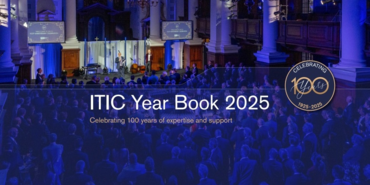ITIC circular: EU sanctions against Russia

Date: 16th September 2022
Since Russia’s invasion of the Ukraine in February 2022, the European Union has progressively intensified its sanctions against Russia. Of most significance for ITIC members are the series of amendments to Council Regulation 833/2014, a consolidated version of which is available here. To aid the implementation and interpretation of the sanctions, the EU has continually updated a list of non-binding FAQs, available here.
This circular considers the applicability of some of the current (at the time of publication) EU sanctions for our members—whether managers, brokers, or agents.
1) Where do EU sanctions have effect?
- Within the territory of the Union;
- On board any aircraft or any vessel under the jurisdiction of a Member State;
- For any person inside or outside the territory of the Union who is a national of a Member State;
- For any legal person, entity or body, inside or outside the territory of the Union, which is incorporated or constituted under the law of a Member State;
- For any legal person, entity or body in respect of any business done in whole or in part within the Union.
Please note that notwithstanding the above, members should consider whether getting involved in any trade would breach any warranty they have given to counterparties not to breach sanctions imposed by other jurisdictions.
2) Transporting oil and petroleum products
(a) From Russia into the EU: The Regulation prohibits the purchase, import, or transfer, directly or indirectly, of crude oil and certain refined petroleum products into the EU, if they originate in or are exported from Russia. Brokerage and agency services related to such purchase, import, and transfer are also prohibited.
Exemptions are broadly as follows:
- Spot market transactions: These are permitted until 5 December 2022 (for crude oil) and 5 February 2023 (for refined petroleum products) if they are notified to the relevant Member States within 10 days of their completion.
- Pre-existing transportation contracts: These may be executed if the underlying transaction pre-dates 4 June 2022 and the relevant sales contract was notified to the relevant Member States by 24 June 2022.
It is important for members to carefully assess whether the relevant exemption applies with reference to any specific trade they are involved in (taking account of the latest EU guidance).
A corresponding ban applies to the provision of insurance. Therefore, members should note that, since most of the IG P&I Clubs are subject to the jurisdiction of the EU and all rely on reinsurance arrangements which include EU reinsurers, unless there is a relevant exemption which permits the trade, it is most likely that the transport of such goods into the EU will not be insured by any IG Club. ITIC’s underwriting and/or reinsurance arrangements also involve EU entities. As such ITIC will likely be unable to insure members’ involvement in such trades. Members should check with their own sanctions specialist lawyers before entering into any such agreements.
b) From Russia to third countries: The transport of crude oil and petroleum products from Russia to third countries is permitted in theory for transport operators. However, subject to limited exemptions, the EU sanctions provide that “it shall be prohibited to provide, directly or indirectly, technical assistance, brokering services or financing or financial assistance, related to the transport…”. As such, the ban applies to members subject to the EU sanctions (as per section 1, above). The ban on the provision of insurance services remains, and as such unless an exemption applies then again, the IG P&I Clubs would likely not insure such transport and ITIC will likely not be able to insure members’ involvement.
3) Exporting Russian fertilisers, iron and steel products, coal, and other fossil fuels
It is prohibited to play any part in the transport of the products listed in Annexes XVII, XXI, or XXII if the cargo originates in or is exported from Russia. These products include, amongst others, many kinds of fertilisers, certain iron and steel products, coal, and other solid fossil fuels. For all trades it is important the relevant commodity is checked against the Annexes and classification codes. The prohibition applies not just to ship managers, but equally to shipbrokers and agents. Notably it applies equally to transport to the EU or to third countries.
It is unlikely that ITIC would be able to insure any members’ involvement in such transport.
4) Trading with Russian state-owned entities
Save for certain exemptions, it is prohibited by the EU sanctions “to directly or indirectly engage” in any transactions with the entities listed in Annex XIX as being owned or controlled by the Russian state and any legal person, entity or body established outside the EU whose proprietary rights are directly or indirectly owned for more than 50%, or acting on behalf or at the direction of any such entity listed in Annex XIX. These entities include Rosneft, Transneft, and Gazprom Neft. The prohibition includes calling at a port owned by one of these entities (such as Novorossiysk) save where relevant exemptions are applicable. However, in the event of a claim relating to such a port call, even if a member can benefit from an exemption, ITIC would be prohibited to make a direct payment to a port owned by an Annex XIX entity and may be unable to reimburse its member.
5) Additional Comments
We remind our ship manager members that it is a condition of their insurance that they are named as a co-assured in all insurances taken out in respect of any ship under their management. If owners’ EU insurers cannot cover certain trades because of the insurance ban mentioned above, owners may look to less reputable insurers as an alternative. We remind members that the P&I cover under which they are co-assured, if not provided by (or reinsured by) an IG member, must be provided by an insurer having a Standard & Poor rating of A minus or above. And the relevant hull policy must be on terms equivalent to those of Lloyd's Marine Policy MAR Form 91 with the Institute Time Clauses Hulls 1/11/95 clause 280.
We would caution ship agent members to also exercise caution when accepting appointments from vessels who are not insured by IG P&I insurers or other reputable insurers as they may face more issues in getting indemnified for claims from their principals.
We also remind members to continue carrying out all due diligence checks with respect to all parties involved in the transaction and to document the due diligence carried out.
If ITIC members become aware, or have concerns, that their clients and/or parties in a transaction have become a sanctioned entity, or are concerned as to whether the sanctions regimes apply to any of their transactions, they should contact specialist sanctions lawyers as soon as possible. There is a dedicated Russia-Ukraine conflict page on the ITIC website, where you can find further circulars and podcasts on the topic.
Please note that the sanctions landscape changes continually. This guidance is based on the sanctions in force at the date of publishing only. It identifies only certain of the key prohibitions and does not constitute legal advice. It is provided for general information purposes only and should not be understood as guidance on any particular claim or trade, or an assurance that ITIC will cover any particular claim.
- Date
- 16/09/2022








